As a BetterHelp affiliate, we receive compensation from BetterHelp if you purchase products or services through the links provided
Anyone who has had a few sleepless nights, whether because of work commitments or their inability to sleep, will attest that it affects their well-being in several ways. How important is sleep, and most importantly, what are its benefits and hidden perks?
The Power of Sleep: Unleashing Its Benefits
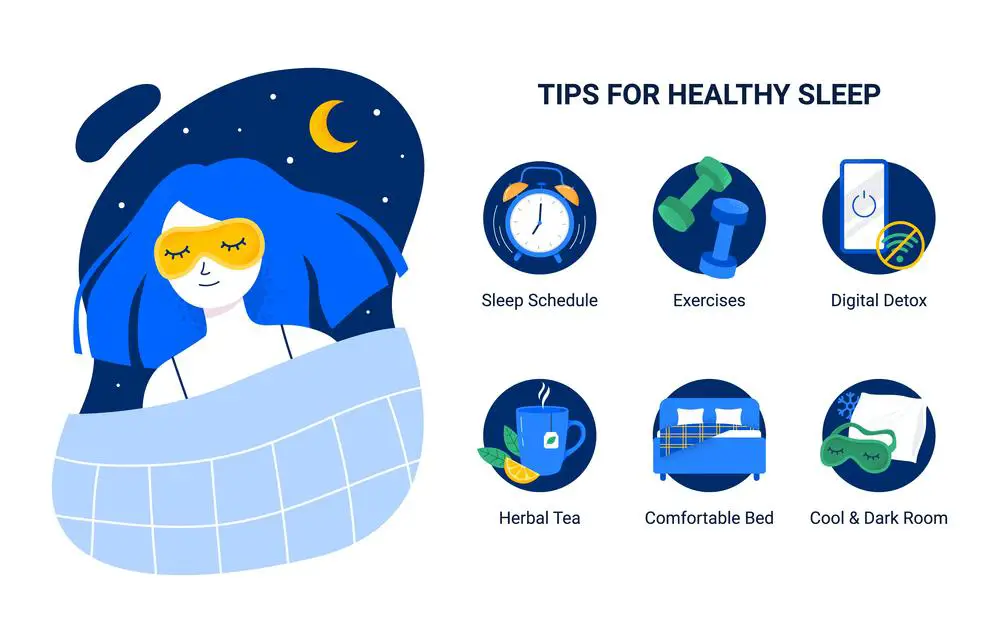
As a species, like all creatures on our planet, we rely on the 24-hour cycle dictated by the Earth’s rotation around the sun. We are not a nocturnal species, and some theories say that sleeping during the night helps us rest and avoid predators while conserving our energy for daytime activities. Therefore, our evolution helped our ancestors adapt to working during the day when they could see and resting at night when it was too dark and dangerous to work.
Our circadian rhythms are the biological patterns we adapted to survive the 24-hour cycle. These elevate our desire to sleep at night and make us more alert during the day, especially in the morning. However, the Sleep Foundation tells us that our sleep-wake cycle relies on environmental clues. In the evening, the release of melatonin, a sleep hormone, starts as darkness sets in. Come morning, melatonin levels drop dramatically, becoming almost non-existent. Interestingly, our body temperature changes with the increasing and decreasing melatonin levels. It drops in the evening and rises during the day, making the difference in how alert or ready we are for sleep.
Sleep Stages
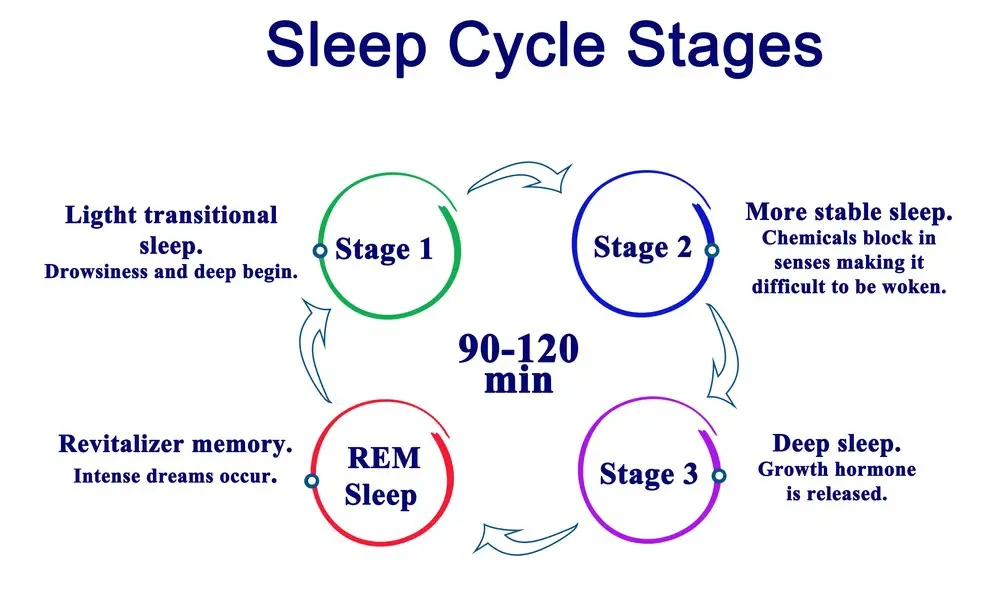
Our evolution has made it necessary to get nightly sleep, but how important is sleep? It’s impossible to write an article on the importance of sleep without mentioning the role of sleep stages. Sleep has four stages, some lasting for a few minutes while others longer, forming a beneficial process.
The first three stages experienced during sleep are known as non-rapid eye movement (non-REM), followed by the rapid eye movement (REM) stage. It usually takes about 1.5 to 2 hours to experience all four stages.
The four sleep stages work as follows:
- Stage N1 is the lightest stage of sleep, lasting a few minutes.
- Stage N2 is the longest stage, with most healthy adults usually spending about half of the night in it. During this stage, the brain activity slows, but it still has bursts of activity that help retain memory and learning.
- Stage N3 is “slow wave sleep” or “deep sleep,” which lasts between ten and twenty percent of our time sleeping. We experience lower blood pressure and a slower heart and breathing rate during this stage. The body also secretes growth hormones.
- REM sleep occurs mostly when we are about to awake and lasts for about twenty to twenty-five percent of the sleep cycle. Our eyes move rapidly and erratically during this stage, and we have our most vivid dreams. Our skeletal muscles become temporarily numbed to prevent us from acting out our dreams. It’s the stage where memory consolidation occurs.
If an individual has stress or sleep apnea, missing out on a stage of their sleep cycle, they may experience severe consequences to their overall well-being, both physical and mental.
How Much Sleep Do We Need?
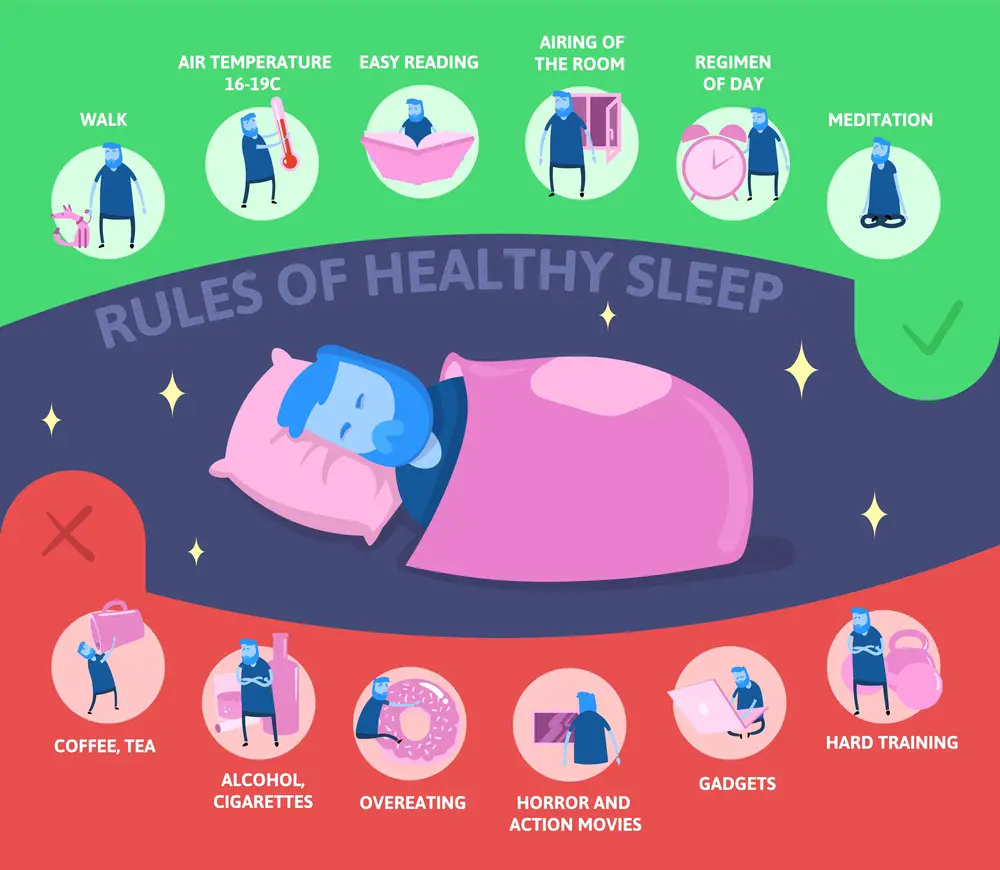
When considering the importance of sleep, it’s crucial to understand how much is enough. Experts generally agree that we need at least seven hours of nightly sleep. However, many factors determine how much sleep each person optimally needs. Our sleep needs decrease as we age.
For example, infants need up to 16 hours throughout the day and never less than 12 hours. Toddlers need between 11 and 14 hours, while preschoolers need 10 to 13 hours. Schoolgoers between six and twelve years need between nine and twelve hours; teens up to age 18 need 8-10 hours, and adults up to seven hours, sometimes.
Lack of Sleep and its Effects
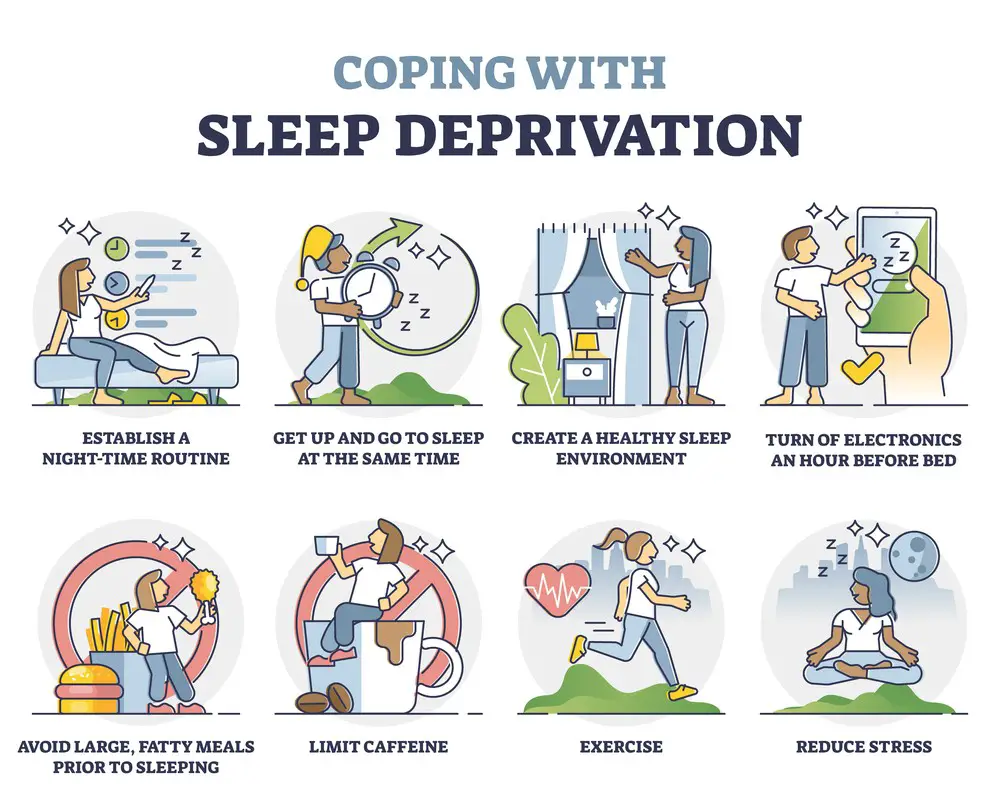
The consequences of not getting enough sleep vary. One sleepless night will make clear thinking and focusing harder, and you’ll feel sluggish and irritable the next day. You may also suffer poor judgment. Sleep deprivation significantly elevates your risk of making mistakes while driving or working. If you chronically get insufficient sleep, its effects become more severe and include:
- A suppressed immune system that makes you more susceptible to infections and illness
- Increased risk of developing chronic ailments like heart problems, type 2 diabetes, and high blood pressure
- Slows the metabolism, elevating your risk for obesity
- Work and relationships may suffer
- Increased risk of depression and anxiety
Discovering the Importance of Quality Sleep
Sleep is an essential function that recharges your body and mind. How important is sleep? It leaves you feeling refreshed and alert, ready to face the day. Sleeping well helps your body stay healthy because it’s more able to fight off diseases. Without enough sleep, your brain struggles to function properly, weakening your ability to concentrate, process memories, and think clearly.
These are the reasons why you need quality sleep:
- Sleep helps focus and concentration, making it easier for the brain to register and organize memories vital for learning.
- Sleep helps regulate emotions and the physical and psychological effects of stress.
- Sleep influences the ability to recognize danger and threats.
- Sleep supports sound judgment, better decision-making, organization, motivation, adaptability, and other human executive functions.
- Research shows that better sleep helps with solving complex problems.
- The extended period of inactivity during a sleep cycle conserves energy for use during a busy day.
- Sleep encourages the release of growth hormones needed by the body’s tissues for growth and damage repair.
- Sleep supports immune function, allowing the body to fight diseases and infections.
Boost Your Health: The Benefits of Adequate Sleep
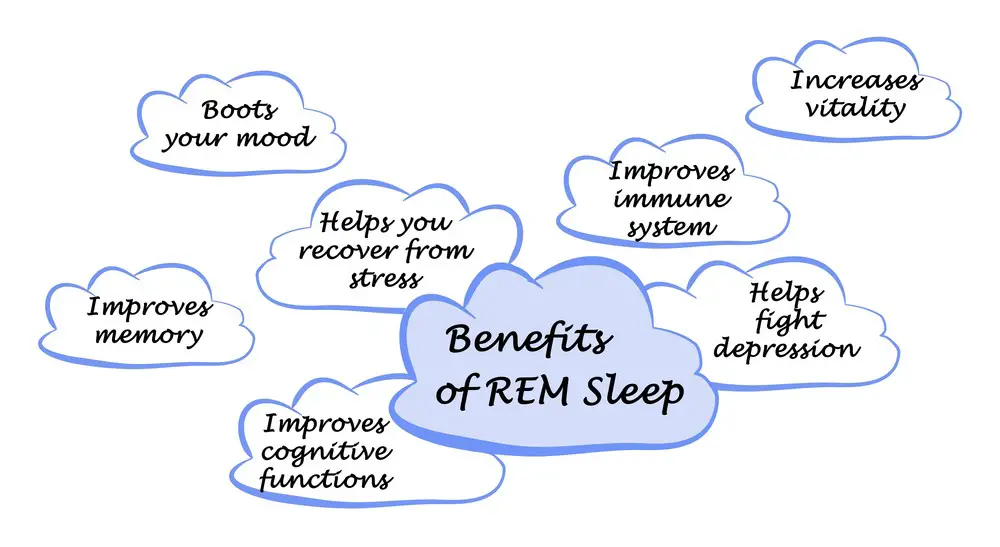
Sleep is like a superhero for your body and mind, swooping in to help save it from several dangers. How important is sleep for your well-being? Here’s a look at some of the incredible benefits it brings:
Restoration and Repair – While you sleep, your body works hard to repair tissues, muscles, and organs.
Memory Boost – Have you ever heard of “sleeping on it”? Turns out, it’s not just a saying. Your brain uses sleep to consolidate memories and make connections, helping you learn and remember better.
Emotional Well-being – A good night’s sleep can improve your mood. It helps regulate emotions and gives you the resilience to tackle whatever comes your way.
Immune System Support – Sleep strengthens your immune system, helping you fend off illnesses and infections. Think of it as your body’s way of gearing up for battle against germs.
Physical Performance – Sleep is crucial for peak performance, whether you’re trying to stay fit or as a professional sportsperson. It enhances coordination, speed, and accuracy, giving you that extra edge.
Heart Health – Scientists have linked a lack of sleep to a greater risk of suffering heart disease and stroke. By getting enough shut-eye, you’re giving your heart the care it needs to keep beating strong.
Weight Management – Believe it or not, sleep plays a role in regulating appetite and metabolism. When you’re well-rested, you’re less likely to reach for unhealthy snacks and more likely to make nutritious choices.
Creativity and Problem-Solving – Ever wake up with the solution to a problem you’ve been pondering? That’s your brain’s way of saying thanks for a good night’s sleep. It enhances creativity and problem-solving skills, making you more innovative and resourceful.
Longevity – Studies have shown that those who generally sleep enough tend to live longer, healthier lives. So, if you want to stick around for the long haul, prioritize your sleep and find ways to ensure you get quality zzz.
Overall Well-being – At the end of the day, sleep is essential for your overall well-being. It’s not just about feeling rested; it’s about feeling vibrant, energized, and ready to take on the world. Get enough sleep and let it work its magic.
Read more about how sleep can boost your health here from Healthline.
Sleep Secrets: Unveiling the Hidden Perks
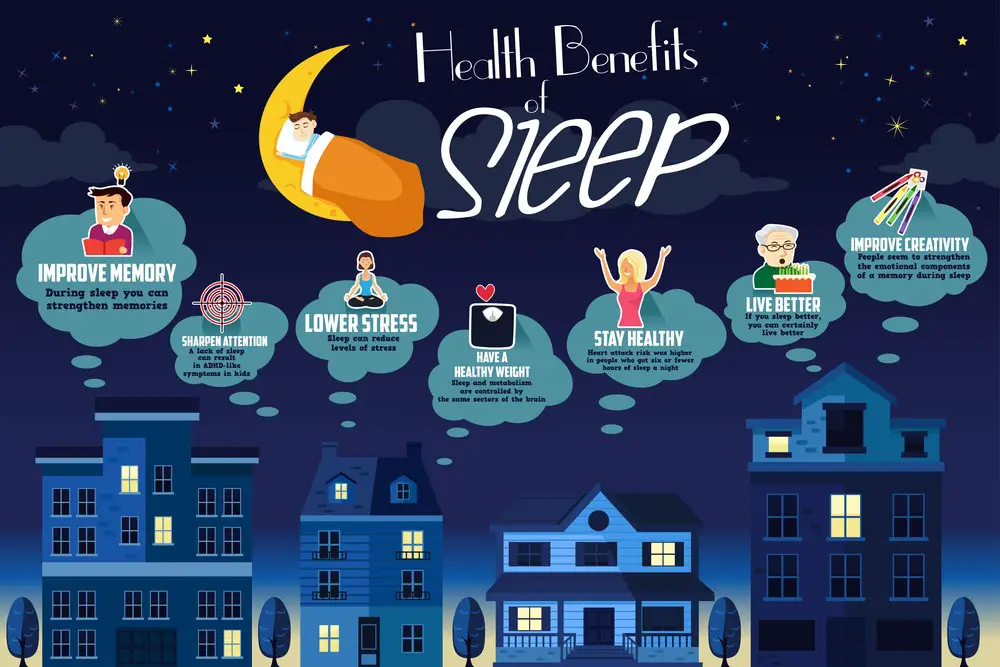
Here’s to unveiling the hidden perks of sleep! These are a few lesser-known sleep secrets that make hitting the hay even sweeter:
1. Creativity Reboot
Ever notice how your dreams can be incredibly vivid and creative? Well, sleep doesn’t just inspire wild dreams; it also boosts your overall creativity. During REM sleep, your brain is busy making unexpected connections and thinking outside the box, leading to moments of creative awakening.
2. Problem-Solving Genius
Need to crack a tough problem? Sleep on it! Your brain keeps working on problems even while you sleep, sifting through information and coming up with solutions. So, don’t be surprised if you wake up with a problem solved or with a few brilliant ideas.
3. Beauty Sleep
Scientific proof validates the adage that says you must get your beauty sleep. During sleep, the body works to release growth hormones that repair and regenerate skin cells, leaving you fresh-faced and radiant in the morning.
4. Pain Relief
If you’re dealing with pain, sleep can be a powerful ally. It helps your body heal faster and lowers your perception of pain, making it more manageable.
5. Decision-Making Mastery
Ever feel like you’re more decisive after a good night’s sleep? That’s because sleep helps improve judgment and decision-making skills, allowing you to weigh options more effectively and make sound choices.
6. Learning Accelerator
Sleep is your secret weapon whether you’re mastering a new skill or studying for an exam. It strengthens neural connections formed during learning, helping you retain information more effectively.
7. Stress Buster
Sleep is like a soothing balm for your frazzled nerves. It lessens levels of stress hormones in your body, helping you feel calmer and more centered in the face of life’s challenges.
Relationship Booster
Want to strengthen your bonds with loved ones? Make sure you’re both getting enough sleep. Research shows that individuals suffering from sleep deprivation are more likely to lash out or feel disconnected from others. At the same time, well-rested people have the extra equipment to help them communicate and empathize.
Gut Health Protector
Your gut microbiome loves sleep as much as you do. A healthy sleep schedule promotes a balanced microbiome, supporting digestion, immunity, and overall well-being.
Longevity Booster
Want to live a long, fulfilling life? Sleep might hold the key. Studies have linked sufficient sleep to a longer lifespan, so you can rest easy knowing you’re investing in your future health and happiness.
How important is sleep? Understanding sleep’s importance is vital, as it will encourage you to take measures to get more of it. However, more sleep does not mean better. Ensure you take the measures required to get quality sleep as often as possible to continue reaping its benefits.
- Stress Management: What is the Relationship Between Stress and Addiction? - June 28, 2024
- Exploring Techniques to Maintain a Healthy Lifestyle without Drugs - May 28, 2024
- How Acupuncture Helps Treat Chronic Fatigue Syndrome - May 28, 2024
This site contains affiliate links to products. We will receive a commission for purchases made through these links.



